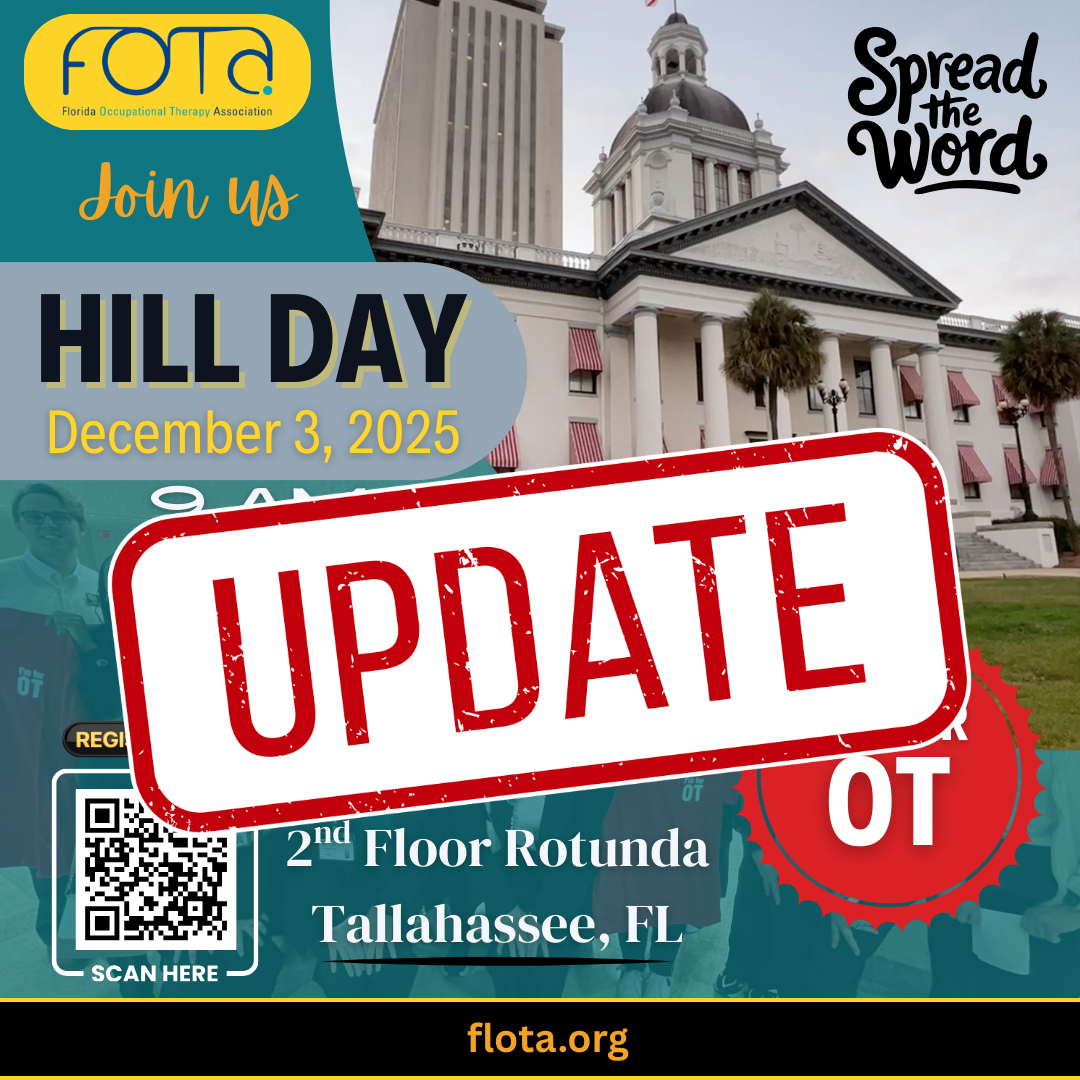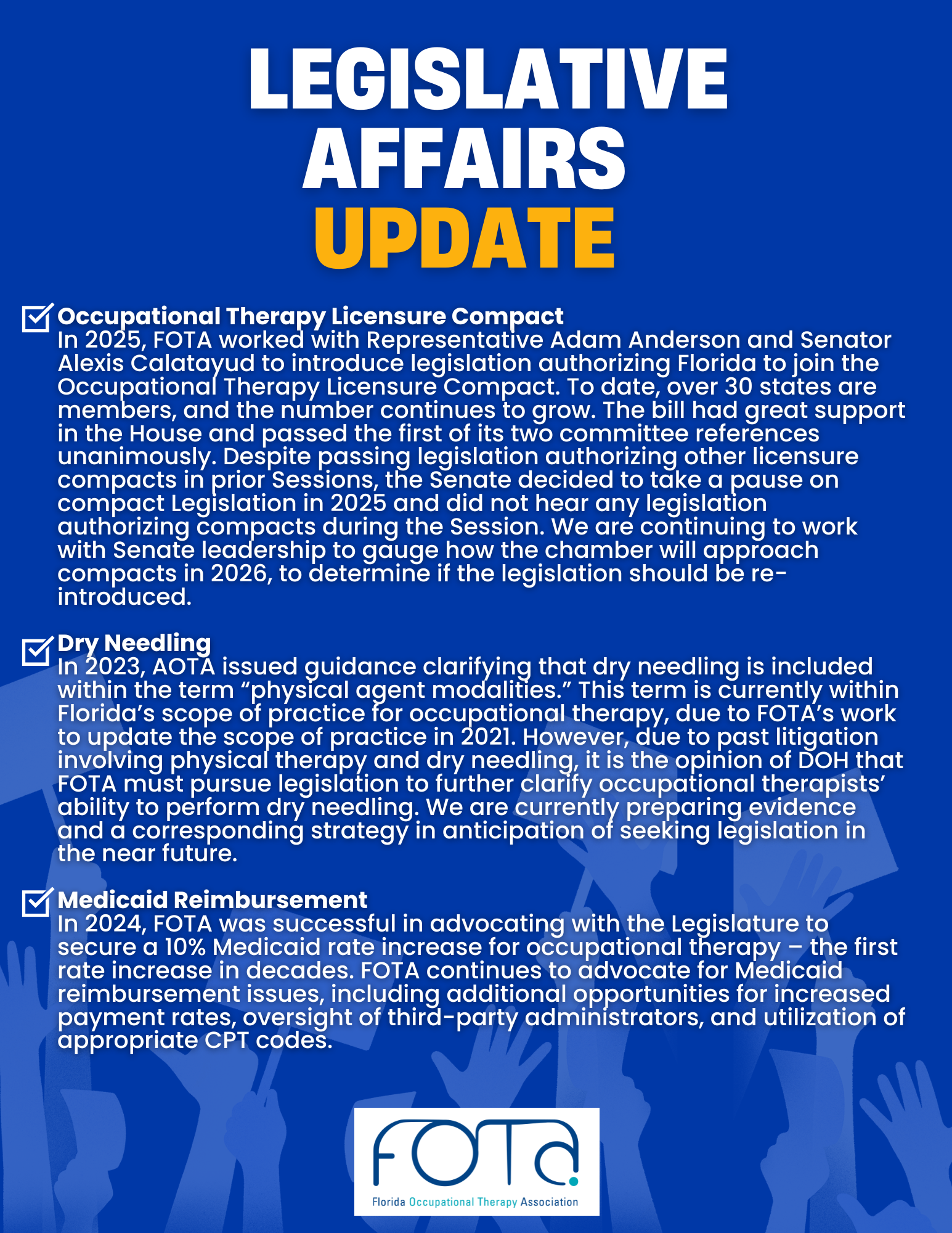

FOTA Hill Day 2025 Recap: Advocacy in Action
On December 3, 2025, Florida Occupational Therapy Association (FOTA) led a powerful Hill Day advancing key legislative priorities for our profession.
Major Win:
Representative Anderson and Senator Calatayud have agreed to sponsor FOTA’s dry needling legislation; bringing us one step closer to expanding OT scope of practice in Florida.
Strong Voices, Real Impact:
Therapists and students from across the state met directly with legislators, sharing firsthand how dry needling benefits both practitioners and clients. These conversations made a difference.
Advocacy Continues:
-
Monitoring interstate compact legislation
-
Addressing Medicaid reimbursement concerns impacting pediatric providers
-
Seeking member support to document reduced reimbursement contracts (80%)
Looking Ahead:
Momentum is strong, progress is real, and your involvement matters. Together, we’re shaping the future of occupational therapy in Florida.
Want more details?
Read the full summary of Hill Day outcomes here
Stay engaged. Speak up. Advocate forward.
— Sharon Rosenberg, CHT, OTR/L & Debora Oliveira, PhD, OTR/L
Advocacy Update: Expanding OT Scope of Practice in Florida
Did you know Occupational Therapists in many states are already permitted to perform dry needling to reduce pain and improve function?
Florida OTs are seeking the same opportunity to better serve patients — with the same training standards already required of PTs.
Click below to learn what this means for patient care, access, and cost-effective treatment.
Allow Occupational Therapists to Perform Dry Needling

HILL DAY January 14th, 2025 Recap:
The Florida Occupational Therapy Association held its annual Hill Day in Tallahassee on Tuesday, January 14th, in advance of the 2025 Legislative Session. Occupational therapists and students from throughout the state attended to advocate for the profession and advance FOTA’s legislative priorities. For the 2025 Session, FOTA is focused on pursuing legislation to join the Occupational Therapy Licensure Compact, sponsored by Representative Adam Anderson (Pinellas) and Senator Alexis Calatayud (Miami). FOTA met with numerous legislators who serve on the House Health Professions & Programs Subcommittee and Senate Health Policy Committee, in anticipation of the bills being referred to their committees. We also met with the Governor’s Office of Policy and Budget, to discuss the Occupational Therapy Licensure Compact and ongoing challenges with Medicaid reimbursement.
The 60-day Legislative Session will officially begin on Tuesday, March 4th and is slated to end Friday, May 2nd, pending the Legislature’s passage of the constitutionally required FY2025-26 budget.
If you have any questions, please contact us at [email protected]
|